
Having been found not guilty after standing trial for sex offenses, actor Kevin Spacey is working on a comeback, signing on to star in multiple movies, doing convention appearances, and sitting down for interviews – including one for the Lex Fridman podcast. During his conversation with Fridman, Spacey was asked what it was like to work on director David Fincher’s 1995 film Seven – or Se7en, if you prefer – in which he played the serial killer known only as John Doe. Spacey’s answer gives an interesting look into the making of a film that many consider to be a classic.
Spacey confirmed to Fridman that he did not originally get the part of John Doe. Someone else was cast in the role… then, soon after filming began, Spacey got a call telling him that Fincher had fired the actor who had been cast and wanted Spacey to report to set. So he did.
Spacey said he was told, “David would like you to get on plane on Sunday and come to Los Angeles and start shooting on Tuesday.” So he read the script and suggested that he shouldn’t get billing in the opening credits or in the marketing because John Doe doesn’t show up until very late in the running time, and if people saw the name Kevin Spacey in the credits or marketing, they’d be waiting for him to show up. And if they were halfway into the movie and Spacey still hadn’t arrived on screen, they’d figure out his character must be the killer. The company behind Seven, New Line Cinema, refused to let Spacey go unbilled… until Fincher backed him up. Spacey said, “It was Fincher who said, ‘I actually think this is a really cool idea.’ So the compromise was I’m the first credit at the end of the movie, when the credits start. So I got on a plane on that Sunday and I flew to Los Angeles and I went into where they were shooting and I went into the makeup room. David Fincher was there and we were talking about what should I do, how should I look, and I just had my hair short for Outbreak ’cause I was playing a military character. I just looked at the hairdresser and I said, ‘Do you have a razor?’ And Fincher went, ‘Are you kidding?’ And I said no. He goes, ‘If you shave your head, I’ll shave mine.’ So we both shaved our heads and then I started shooting the next day.“
Since Spacey was rushed to the set to fill this role, he didn’t have much time to think about his character before he stepped in front of the camera. “I can really only tell you that while we were shooting that scene in the car while we
were out in the desert in that place where all those electrical wires were, David just kept saying, ‘Less.’ And I just tried to… I remember he kept saying to me, ‘Remember, you’re in control. You’re going to win, and knowing that should allow you to have tremendous confidence.’ And I just followed that lead. I just think it’s the kind of film that so many of the elements that had been at work from the beginning of the movie, in terms of its style, in terms of how he built this
terror, in terms of how he built for the audience a sense of this person being one of the scariest people they might
ever encounter, it really allowed me to be able to not have to do that much. Just say the words and mean them. I think it’s also an example of what makes tragedy so difficult. I mean, you know, very often tragedy is people operating without enough information. They don’t have all the facts. Romeo and Juliet, they don’t have all the facts, they don’t know what we know as an audience. So in the end, whether Brad Pitt’s character ends up shooting John Doe or turning the gun on himself, which was a discussion – I mean, there were a number of alternative endings that were discussed – nothing ends up being tied up in a nice little bow. It is complicated and shows how nobody wins in the
end when you’re not operating with all the information.“
Spacey goes on to talk about Fincher’s tendency to do many takes, saying that sometimes it’s a way to “beat the acting out” of an actor until they’re just saying the words, saying them quickly, and meaning them, without any pretense or unnecessary prop acting. Other times, it’s because he has a stopwatch in hand and wants a scene to move as quickly as possible. The clip from the Lex Fridman podcast can be seen at the bottom of this article, if you want to watch / listen to the whole Seven segment.
Directed by David Fincher from a screenplay by Andrew Kevin Walker, Seven has the following synopsis: When retiring police Detective William Somerset (Morgan Freeman) tackles a final case with the aid of newly transferred David Mills (Brad Pitt), they discover a number of elaborate and grizzly murders. They soon realize they are dealing with a serial killer (Kevin Spacey) who is targeting people he thinks represent one of the seven deadly sins. Somerset also befriends Mills’ wife, Tracy (Gwyneth Paltrow), who is pregnant and afraid to raise her child in the crime-riddled city.
Are you a fan of Seven? What do you think of Kevin Spacey’s performance in the film? Let us know by leaving a comment below.


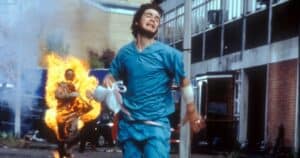




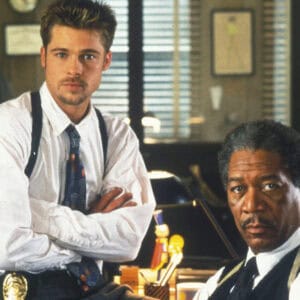
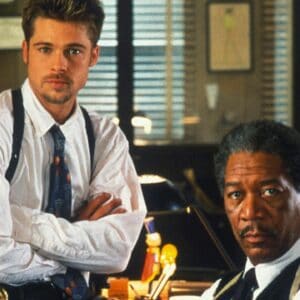

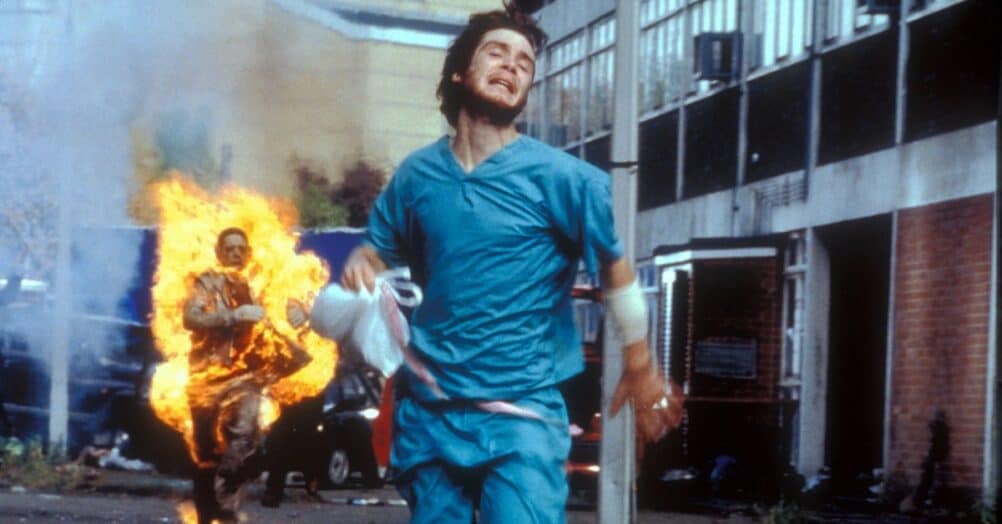





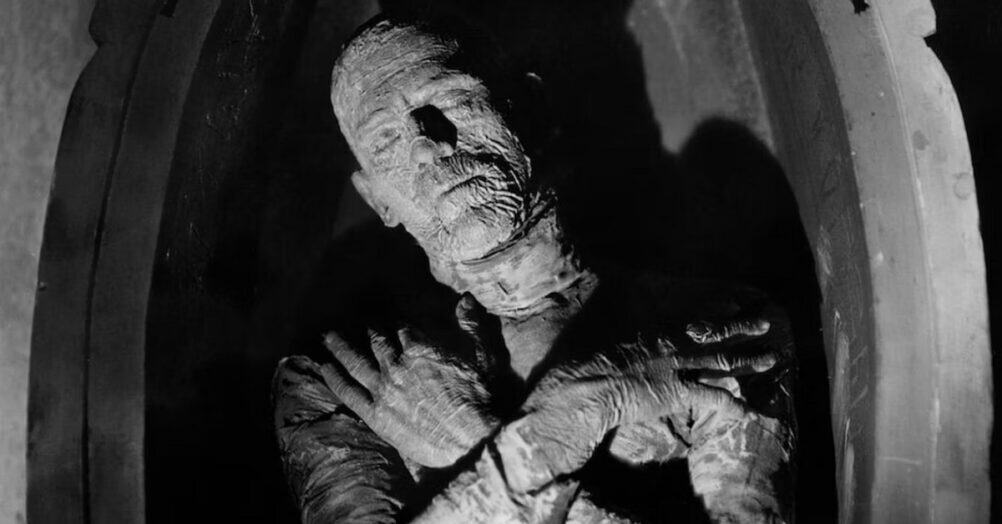
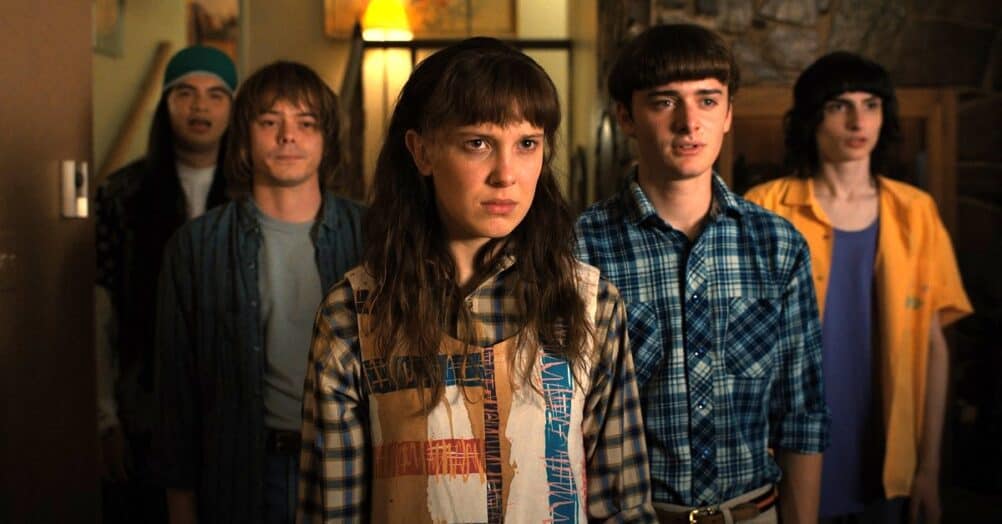


Follow the JOBLO MOVIE NETWORK
Follow us on YOUTUBE
Follow ARROW IN THE HEAD
Follow AITH on YOUTUBE